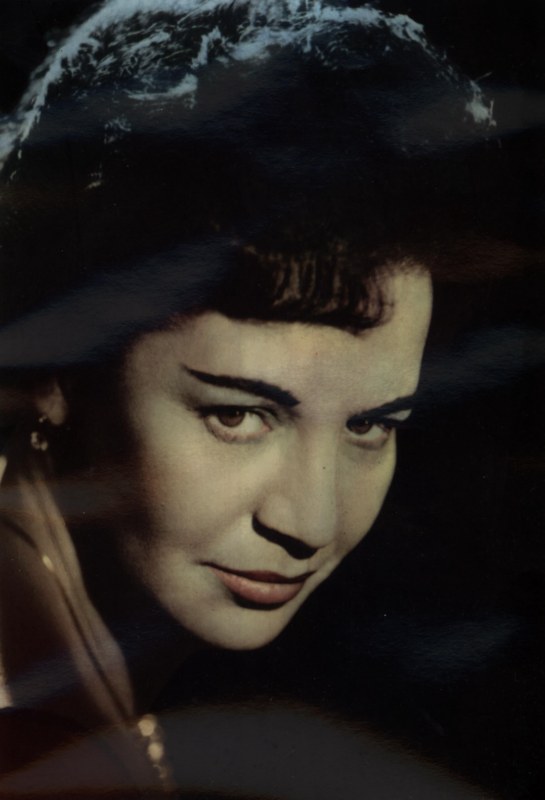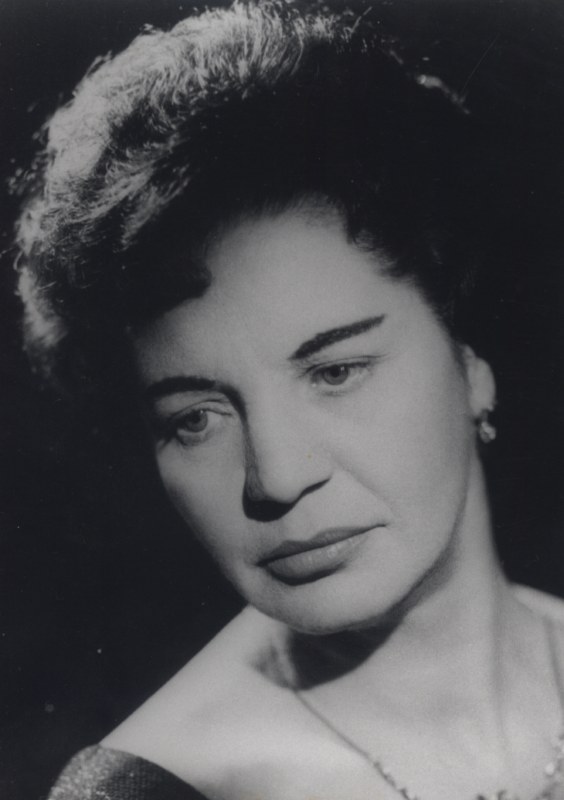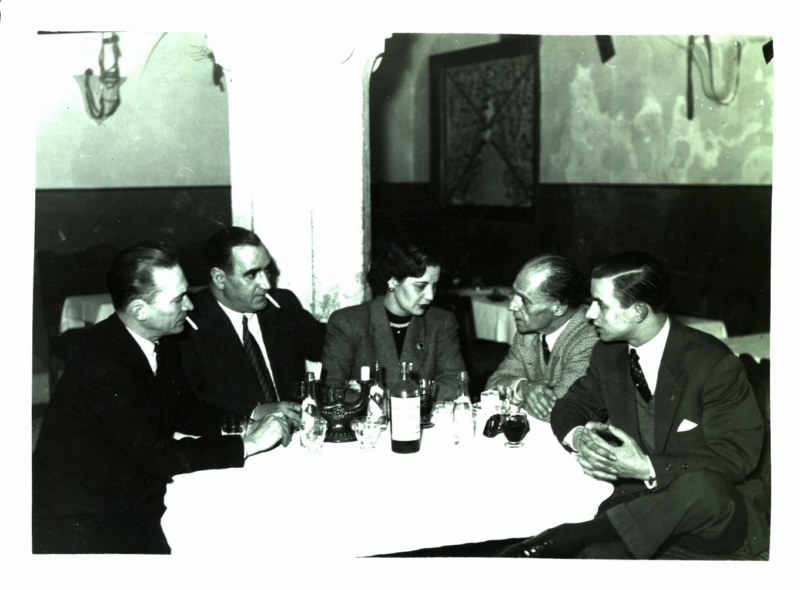Know more:
Márcia Condessa
(N. 28 September, 1915 - M. 1 July, 2006)Márcia Condessa was born in Monção, Minho, on the 28 September 1915. Not affording to study, she came to Lisbon looking for a job.
Her connection to fado begins at the restaurant Bica, where Márcia Condessa worked and sometimes sang fados and a few Galician songs.
In 1938, when the newspaper "Canção do Sul" organizes the Spring Competition, the clients and neighbours ask Márcia Condessa to represent Bica in the competition. The fado singer accepts, wins several stages and sings in the finals, on the 11 July 1938, on one of the newspaper’s office rooms.
The singer performs two fados from her repertoire, a castiço and a canção, as requested by the 16 July edition of the newspaper, where the contest minutes is published. She won the “first prize and, by unanimity, the title «Queen of Fado - 1938» goes to the Bairro da Bica contestant, Márcia Condessa, who combines the required features of diction, voice and expression.
After winning the competition, the fado singer appears on the newspaper’s cover and starts performing at several fado houses and shows until she opened her own typical restaurant in the 1950s.
Márcia Condessa embraced the career of fado singer when won the title «Queen of Fado», at the Spring Competition by the newspaper "Canção do Sul", in 1938.
The places where she sang fado include several fado houses, but it was at Adega Machado that she joined a permanent cast for years, until she opened the restaurant "Márcia Condessa". Since then, her artistic career became exclusively linked to the restaurant’s daily presentations and management.
On the 16 April 1942, Márcia Condessa appears once again on the cover of "Canção do Sul", which only four years after her debut, calls her "A Symbol of Old Fado" and "Voice of Humility".
In 1944, the fado singer performed at Coliseu do Porto, in the show "Mãe Portuguesa", where she joined two other great names of the fado universe: Ercília Costa and Júlio Proença. (cf: "Canção do Sul", 16 September 1944).
The fado singer opens the house "Márcia Condessa" at 38, Praça da Alegria; the place will become a reference in the exhibition circuits of the most prominent fado singers. Besides performances by Márcia Condessa herself, the restaurant hosted artists as Celeste Rodrigues, Alcindo Carvalho, Teresa Nunes, Alfredo Marceneiro, Fernando Farinha and Beatriz da Conceição.
The fado singer will remain here until she decides to retire from the artistic career in the mid-1970s; after that, the restaurant would be managed by a nephew of hers and later by several partners, who kept its name. During the 1990s, it stopped being a fado performance venue and became the restaurant "O Púcaro".
Márcia Condessa also performed abroad. She was in Brazil for 8 months, where she joined a theatre company also formed by Irene Isidro, António Silva and Ribeirinho. After opening her own house she performed in Morocco in the framework of an official State visite.
Despite her long career, there are nearly no disc recordings of Márcia Condessa. She left only one CD release, recorded with Adelina Ramos and Berta Cardoso, for the collection "Fados do Fado" by Movieplay. This collection features the four themes the fado singer recorded with the label Alvorada in 1962: "Embuçado", "Fado menor (quadras soltas)", "Canção do Mar" and "Fado das Caravelas".
Márcia Condessa died on the 1 July 2006, at almost 91 years old. Her funeral took place in her birthplace, Monção.

Márcia Condessa, s/d.

Márcia Condessa, s/d.

Filipe Pinto, Carlos Ramos, Márcia Condessa, Linhares Barbosa e Fernando Farinha Márcia Condessa, s/d.
-
Embuçado Márcia Condessa (Gabriel de Oliveira / José Marques)
